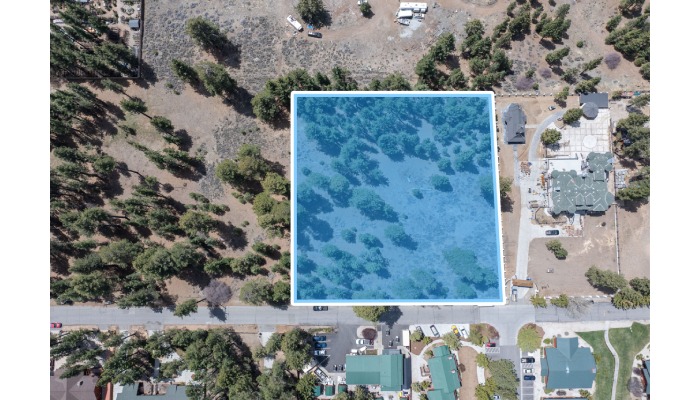
Florida’s booming real estate market and favorable climate make it a top destination for investors seeking to purchase land. Whether you’re eyeing property near the coast, rural acreage, or lots for future development, the Sunshine State offers countless opportunities. However, buying land—especially as an investment—requires due diligence. Without careful planning, you risk purchasing unusable or overvalued land. This guide will help you navigate the pitfalls and ensure your next investment property for sale in Florida is a wise one.
Step 1: Define Your Investment Goals
Before beginning your search for investment property for sale in Florida, define your objectives. Ask yourself:
- Are you planning to develop the land for residential or commercial use?
- Do you want to hold the land for appreciation?
- Are you buying raw land to resell in the future?
Clarifying your purpose will guide decisions related to location, zoning, budget, and timeline.

Step 2: Choose the Right Location
Location is everything in real estate, and Florida is no exception. Some popular areas for investment include:
- Orlando: Growing suburbs and proximity to Disney World make this ideal for residential development.
- Tampa Bay Area: A mix of commercial and residential demand keeps land values rising.
- Southwest Florida: Areas like Cape Coral and Fort Myers are seeing rapid population growth.
- North Florida: Jacksonville and Gainesville offer lower entry points and long-term growth potential.
Also, consider the following when evaluating location:
- Proximity to highways, schools, and commercial hubs
- Flood zones and elevation
- Municipal growth plans and infrastructure development
Step 3: Research Zoning and Land Use Restrictions
One of the biggest mistakes buyers make is failing to verify zoning laws. Just because a piece of land looks ideal doesn’t mean you can build what you envision.
- Check with County Zoning Offices: Each county has specific zoning ordinances. For example, some lots may be zoned strictly for agricultural use, restricting residential or commercial development.
- Future Land Use Maps: These can show whether nearby areas are slated for development, which may affect the value of your land.
- HOA Rules: In some communities, homeowners’ associations impose additional restrictions that could impact your plans.
Always get written confirmation of permitted uses before purchasing land.
Step 4: Confirm Utilities and Access
Another major oversight is assuming all land is ready for development. Many parcels—especially rural or inexpensive ones—lack basic infrastructure.
Key Utilities to Check:
- Water and Sewer: If municipal services aren’t available, will you need a well and septic tank?
- Electricity: Is power available nearby, or will you need to pay to run new lines?
- Road Access: Is the property legally and physically accessible by public or private roads?
Without utilities or legal access, the land may be difficult or impossible to develop.
Step 5: Get a Land Survey
Before finalizing a deal on any investment property for sale in Florida, always get a professional land survey. This will:
- Confirm property boundaries
- Reveal encroachments or easements
- Prevent future disputes with neighbors
A survey also helps when applying for permits and can be a critical tool during resale.
Step 6: Conduct an Environmental Assessment
Florida’s unique ecosystem and wetland regulations mean environmental restrictions can significantly impact land use. Watch for:
- Wetlands: These are protected by federal and state laws, often requiring permits or outright prohibiting development.
- Endangered Species: Some areas may host protected plants or animals that limit land clearing.
- Soil Conditions: Certain regions have sandy or swampy soil that isn’t suitable for building without expensive preparation.
Hiring an environmental consultant or ordering a Phase I Environmental Site Assessment is especially recommended for commercial or large-scale residential plans.
Step 7: Understand Property Taxes and Holding Costs
Even if you don’t develop your land right away, you’ll be responsible for:
- Annual Property Taxes
- Maintenance Costs (like clearing brush or mowing)
- Insurance (optional but recommended, especially for high-value properties)
Florida counties assess property taxes annually, and rates vary by county and land use. Investigate current and projected taxes before committing.
Step 8: Work with a Local Real Estate Agent or Land Specialist
A local expert can guide you to the best investment property for sale in Florida based on your goals. Benefits of using a professional include:
- Access to off-market listings
- Knowledge of zoning and municipal regulations
- Negotiation expertise
- Assistance with due diligence
Look for agents who specialize in land or investment property, rather than just residential sales.
Conclusion
Florida is rich with opportunity for land investors, but not all that glitters is gold. By following a smart, systematic approach, you can avoid costly mistakes and find the perfect investment property for sale in Florida that aligns with your financial goals.
Whether you’re buying for development, appreciation, or a future project, doing your homework is the best way to avoid getting burned. Land investment isn’t about luck—it’s about informed decisions backed by solid research.